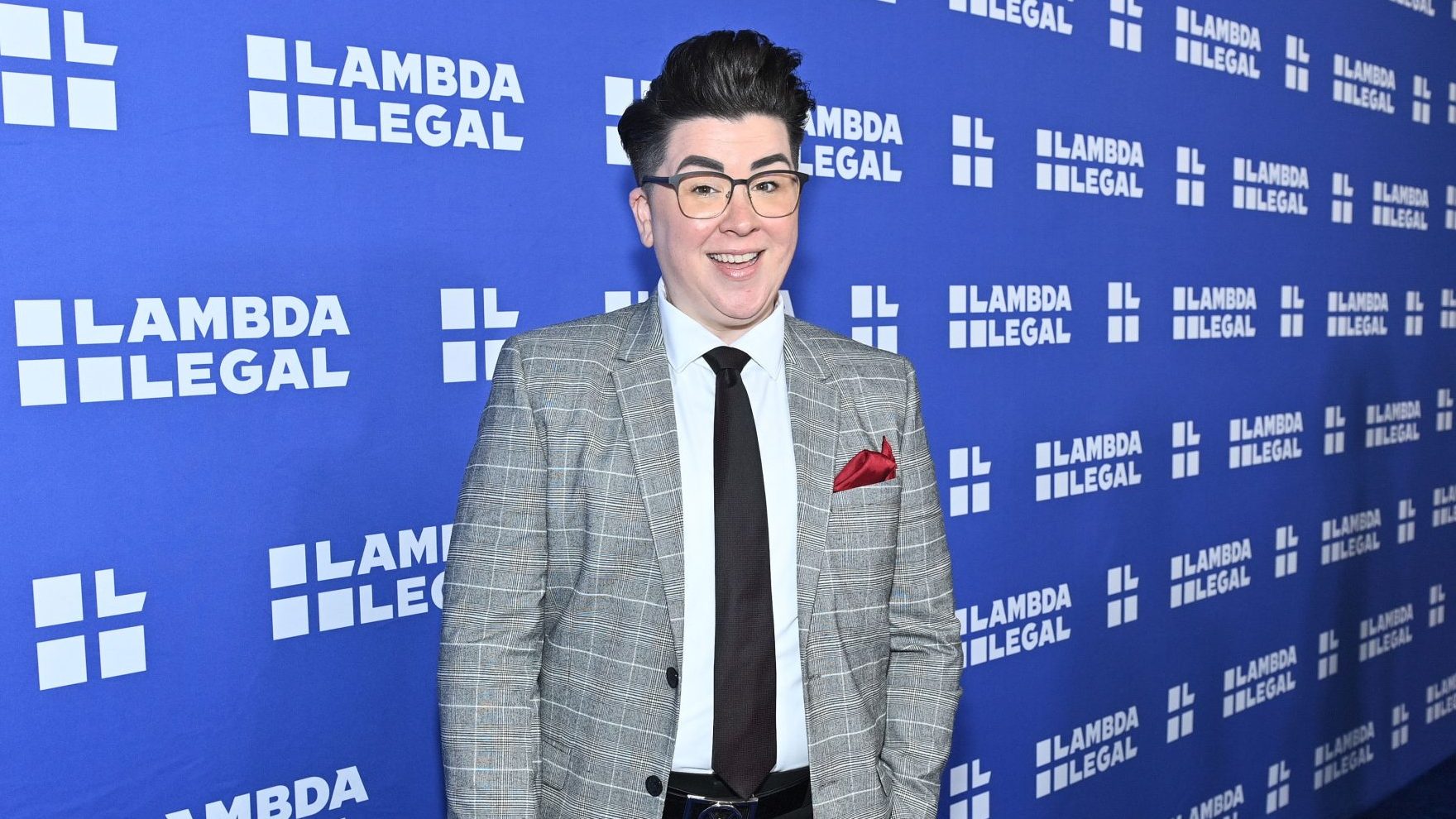In today’s LGBTQ+ culture, few topics stir up as much online discourse as when a famous lesbian reveals she’s dating a man. From pop stars like Fletcher and Billie Eilish to social media influencers and even everyday queer folks, the internet has opinions—and they’re not always kind. But as Pride Month prompts deeper conversations about identity, community, and change, one message is clear: sexuality is fluid, and labels aren’t prisons.
During a recent interview with Gayety nonbinary journalist and content creator V Spehar weighed in on the phenomenon, humorously dubbed “lesbians getting boyfriends.” “As a lesbian who used to have a boyfriend—girl, I get it,” said Spehar. “Sexuality is fluid. The idea that you were a lesbian for a period of time, and now maybe you identify as queer or even straight—it doesn’t make your past invalid. It just means you’re trying something else.”
This idea isn’t new to the LGBTQ+ community, but the conversation has gained renewed urgency as celebrity dating headlines clash with long-held identity expectations. What happens when someone who’s built their brand—or their personal life—around lesbianism starts dating a man? Are they “betraying” the community, or just exploring their truth?
View this post on Instagram
A Cultural Flashpoint, Not a Crisis
Queer Twitter—and TikTok—often lights up with concern or skepticism anytime a public figure “switches teams.” But as Spehar pointed out, these shifts don’t necessarily signal erasure or inauthenticity. “I felt that way when Ani DiFranco married a man,” Spehar confessed. “You’ll get over it.”
The backlash often stems from a mix of protectiveness and fear of erasure. For many lesbians, especially those who’ve fought for visibility and respect in a heteronormative world, seeing someone “leave” for a man can feel like a loss. But queer leaders like Spehar argue that this reaction needs reframing—not condemnation. “We have trained very good-looking men to have bisexual wives. That’s what we wanted,” Spehar joked. “We want them to meet us where we’re at.”
Dating as a Journey—Not a Definition
For many, having a boyfriend isn’t a political statement—it’s part of their personal evolution. Spehar shared that for some people, particularly those who later come out as transgender or nonbinary, dating men might be a stepping stone to understanding themselves more fully. “Sometimes you get a boyfriend to learn how to be a boyfriend,” they said. “That’s all that it is.”
This sentiment echoes a growing understanding that gender and sexual identities aren’t fixed points, but rather ongoing processes. For many, the term “lesbian” once fit perfectly—until it didn’t. That doesn’t invalidate past relationships or the joy those identities brought at the time.
Pride, Every Day and at Home
In the same interview, Spehar explained that their Pride celebration looks a little different—more cozy couch than parade float. “I’m like a stay-at-home gay,” they laughed. “Be with my wife and watch reruns of Greek and Hart of Dixie. But I wear the merch every day—new merch made by queer artists.”
For Spehar, Pride isn’t confined to June or rainbow-filled streets. It’s about authenticity, comfort, and showing up every day in ways that feel right for you. And that message extends to how we treat one another, especially those navigating new labels or relationships.
A Bigger Picture: Fluidity in Queer Identity
The debate over lesbians dating men often stems from a discomfort with ambiguity. But in reality, queerness has always encompassed fluidity, experimentation, and personal change. Identity isn’t a static marker; it evolves with experience, love, and self-discovery. “Sexuality isn’t a one-way street,” Spehar noted. “People are going to explore different connections, and that doesn’t mean they were lying before.”
Public figures often bear the brunt of these conversations. When someone like JoJo Siwa or Billie Eilish is seen with a male partner after identifying as queer, the response can be swift and judgmental. But for many queer people, especially Gen Z, identity is a spectrum, not a binary. “You don’t have to worry about JoJo or Fletcher or Billie Eilish,” Spehar said. “They’re just trying something else. And I support that.”
“Gay Baiting” or Just Living?
One of the loudest critiques lobbed at queer women dating men is the accusation of “gay baiting”—that someone used queerness for clout only to return to heterosexuality when convenient. But this accusation overlooks how nuanced sexuality truly is.
Spehar pushed back on that framing. “Sexuality is fluid, and in many cases it doesn’t mean they were wrong about everything they experienced before,” they said. “It just means they’re trying something else.”
Trying something else isn’t betrayal. It’s human.
Empathy Over Judgment
Ultimately, the lesson here is about grace. Pride is a time to celebrate liberation, but also to embrace the complexity of identity. That includes people who once identified as lesbians now exploring new relationships.
Spehar offered a final piece of advice: let people live—and grow. “Sometimes the jeans don’t fit, and you want to try a new pair,” Lalwani joked. “That’s it.”
And if you come back to your favorite pair? That’s fine too.

